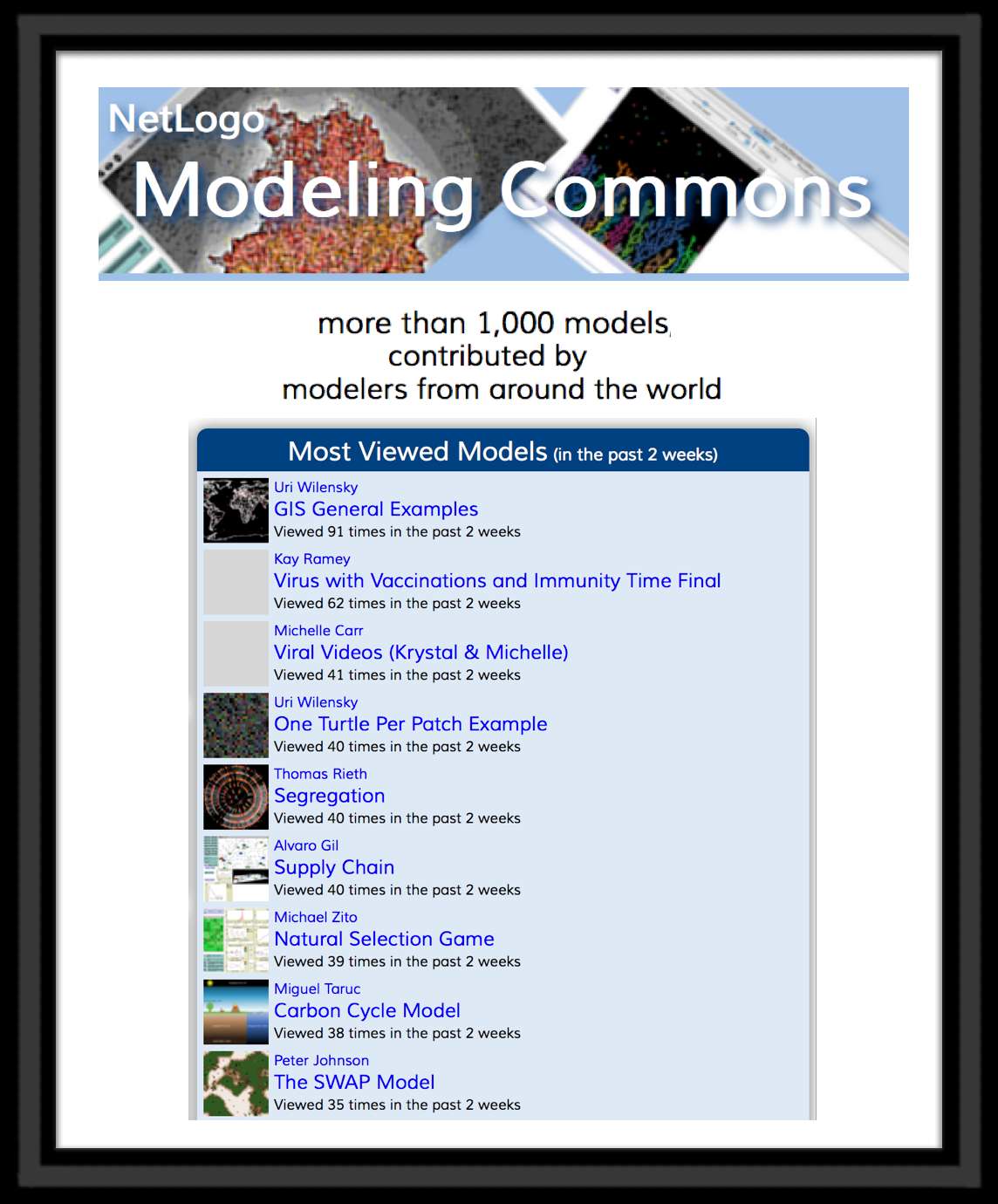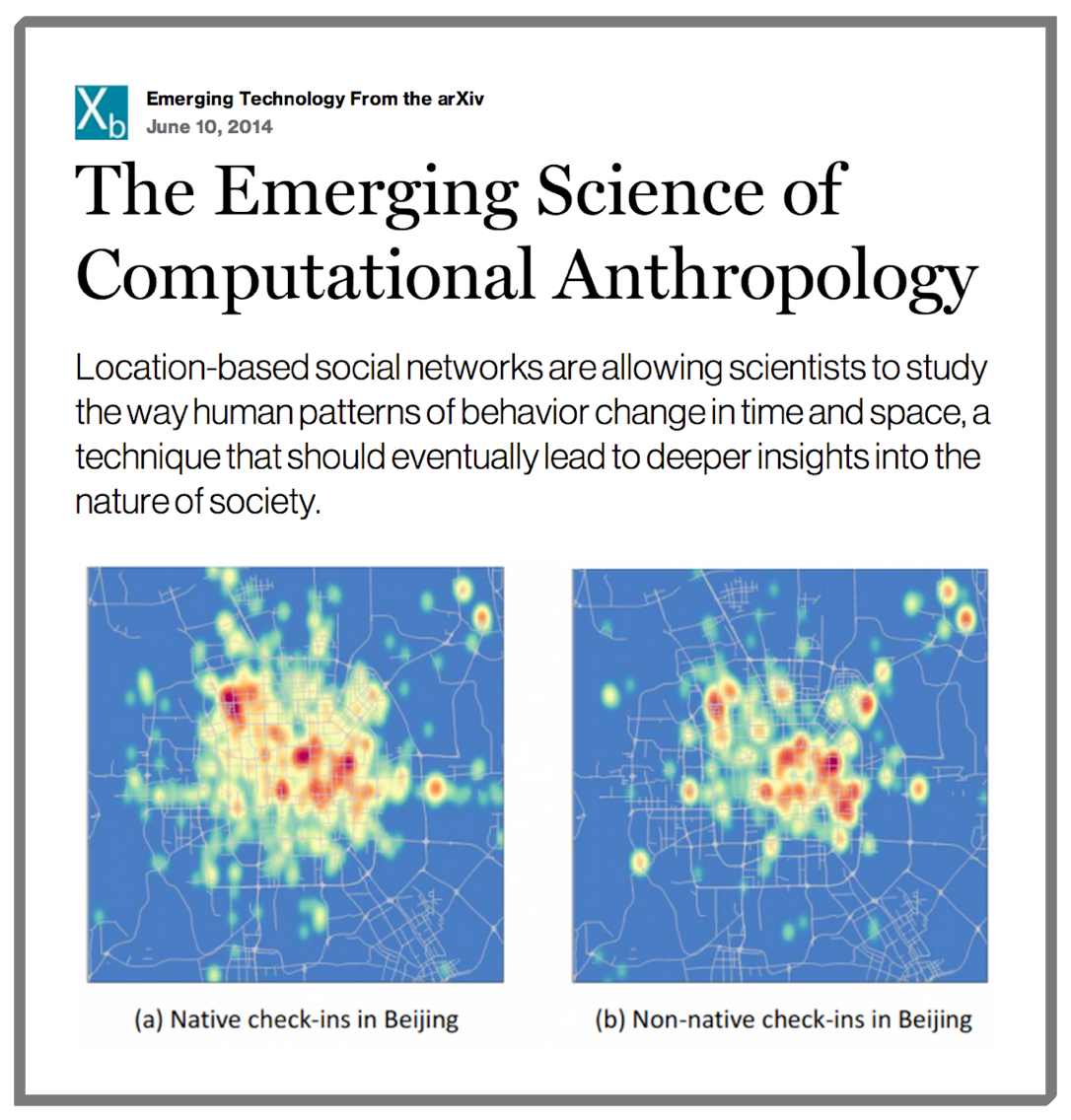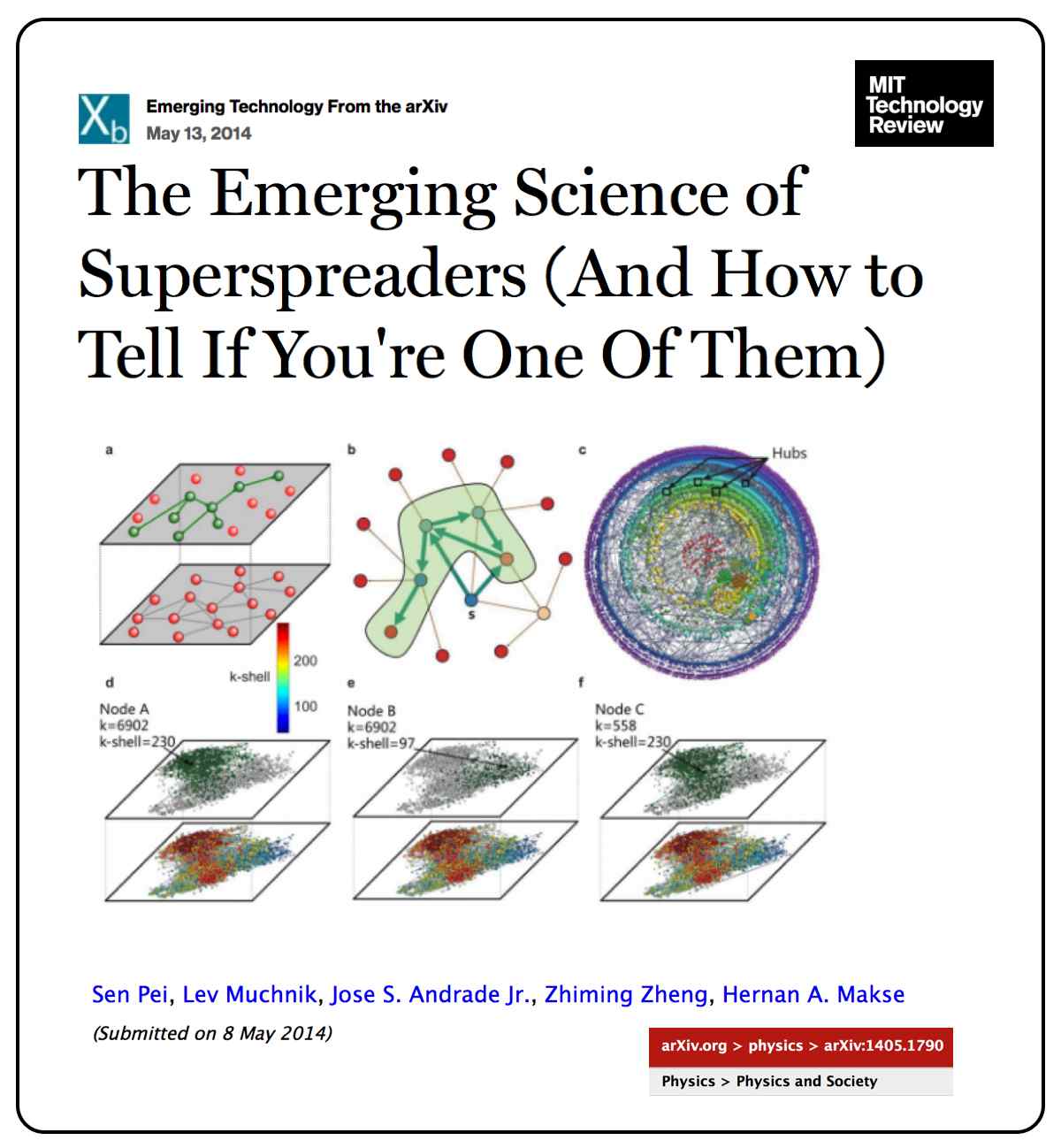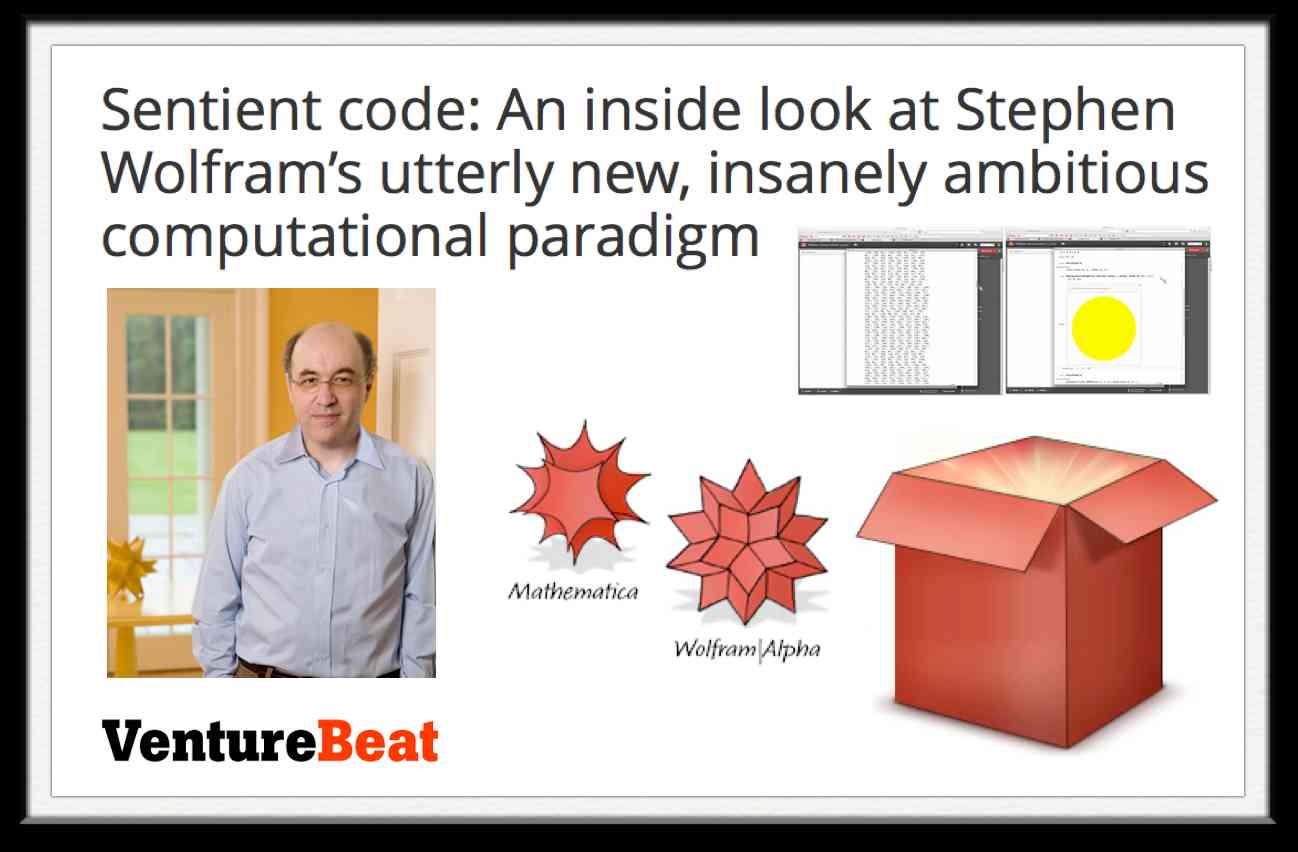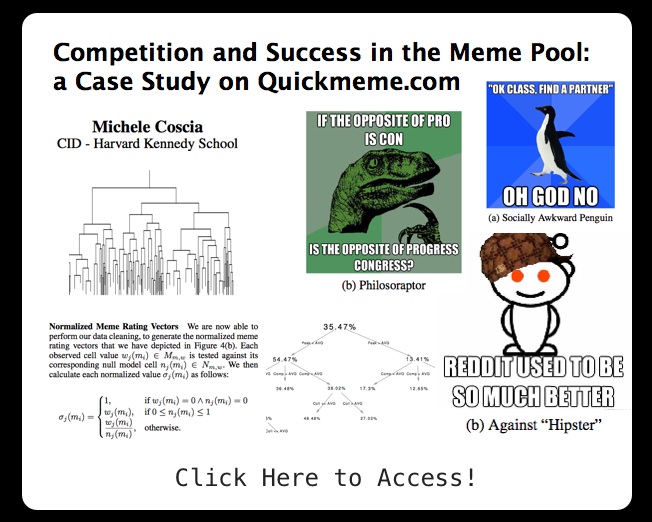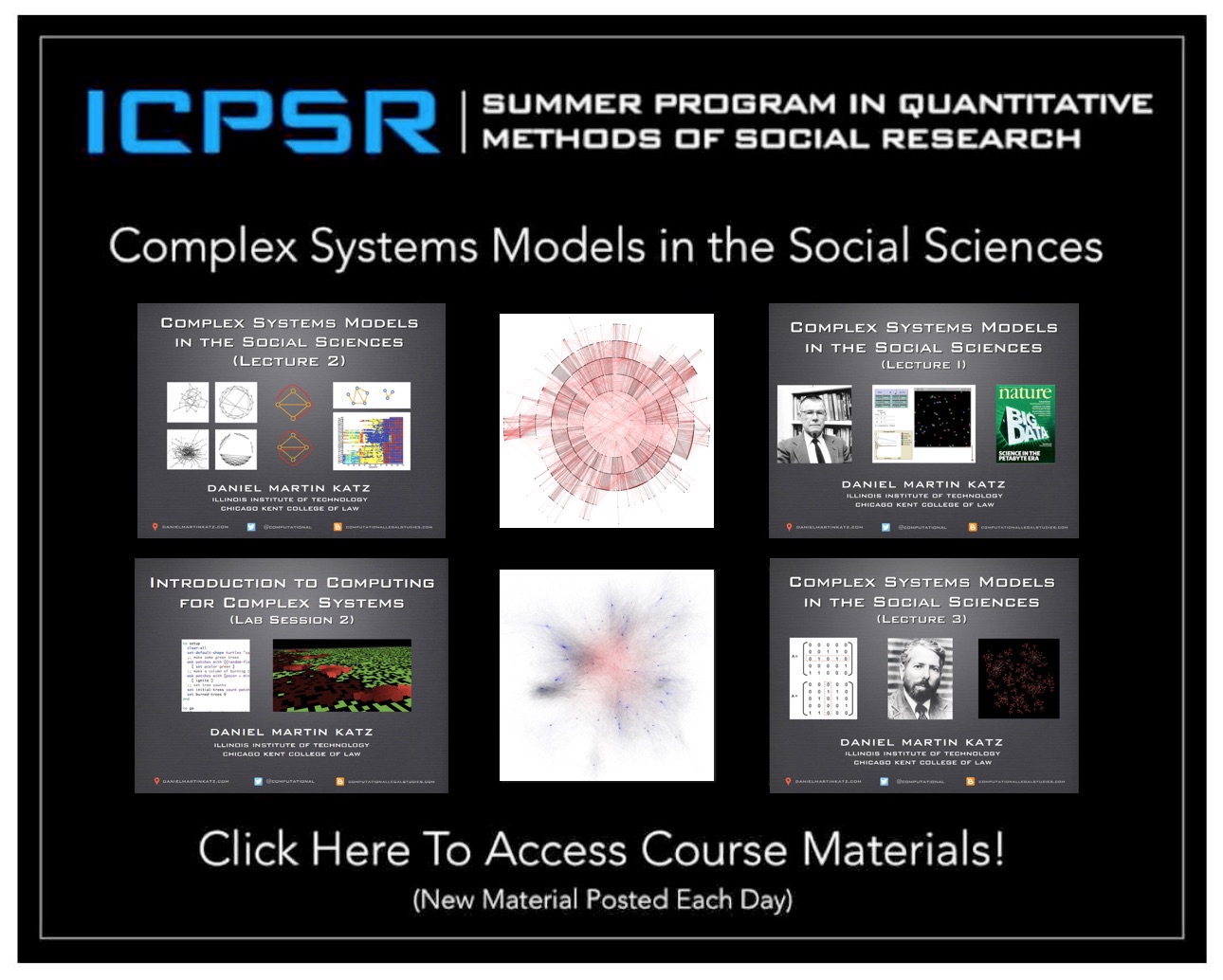 This upcoming week and next week I have the pleasure of teaching “Complex Systems Models in the Social Sciences” here at the University of Michigan ICPSR Summer Program in Quantitative Methods. The field of complex systems is very diverse and it is difficult to do complete justice to the range of scholarship conducted under this umbrella in a short survey course. However, we strive to cover the canonical topics such as computational game theory and computational modeling, network science, natural language processing, randomness vs. determinism, diffusion, cascades, emergence, empirical approaches to study complexity (including measurement), social epidemiology, non-linear dynamics, etc. Click here or on the image above to access my course materials!
This upcoming week and next week I have the pleasure of teaching “Complex Systems Models in the Social Sciences” here at the University of Michigan ICPSR Summer Program in Quantitative Methods. The field of complex systems is very diverse and it is difficult to do complete justice to the range of scholarship conducted under this umbrella in a short survey course. However, we strive to cover the canonical topics such as computational game theory and computational modeling, network science, natural language processing, randomness vs. determinism, diffusion, cascades, emergence, empirical approaches to study complexity (including measurement), social epidemiology, non-linear dynamics, etc. Click here or on the image above to access my course materials!
Tag: computational social science
15th International Conference on Artificial Intelligence & Law — San Diego (Final Day for Priority Registration)
 As a member of the local organizing committee, I just wanted to mention that today is the final day for priority registration for the International Conference on Artificial Intelligence & Law in San Diego.
As a member of the local organizing committee, I just wanted to mention that today is the final day for priority registration for the International Conference on Artificial Intelligence & Law in San Diego.
Law Under the Data Deluge
Examples Law + Society as well as the Future of the Legal Profession including work by {Dazza Greenword @ MIT Media Lab, Us (i.e. Mike Bommarito and Dan Katz)} as well as many others …
Humanity’s Cultural History Captured in 5-Minute Film (via Science)
More coverage is here. This builds upon ideas that were expressed at the High Throughput Humanities track at the 2010 European Complex Systems Conference.
Teaching the Complex Systems Course @ University of Michigan ICPSR Summer Program in Quantitative Methods
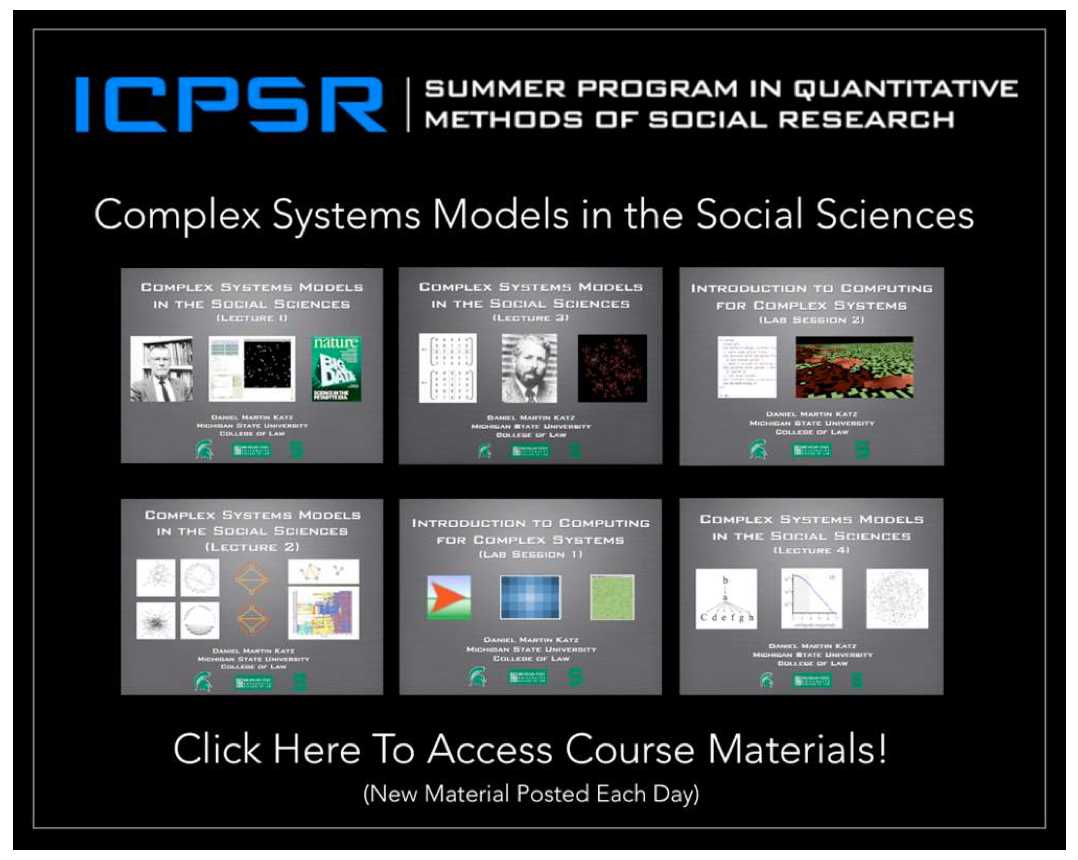 This upcoming week and next week I have the pleasure of teaching “Complex Systems Models in the Social Sciences” here at the University of Michigan ICPSR Summer Program in Quantitative Methods. The field of complex systems is very diverse and it is difficult to do complete justice to the range of scholarship conducted under this umbrella in a short survey course. However, we strive to cover the canonical topics such as computational game theory and computational modeling, network science, natural language processing, randomness vs. determinism, diffusion, cascades, emergence, empirical approaches to study complexity (including measurement), social epidemiology, non-linear dynamics, etc. Click here or on the image above to access my course materials!
This upcoming week and next week I have the pleasure of teaching “Complex Systems Models in the Social Sciences” here at the University of Michigan ICPSR Summer Program in Quantitative Methods. The field of complex systems is very diverse and it is difficult to do complete justice to the range of scholarship conducted under this umbrella in a short survey course. However, we strive to cover the canonical topics such as computational game theory and computational modeling, network science, natural language processing, randomness vs. determinism, diffusion, cascades, emergence, empirical approaches to study complexity (including measurement), social epidemiology, non-linear dynamics, etc. Click here or on the image above to access my course materials!
Complex Systems Models in the Social Science @ UMich ICPSR Summer Program in Quantitative Methods
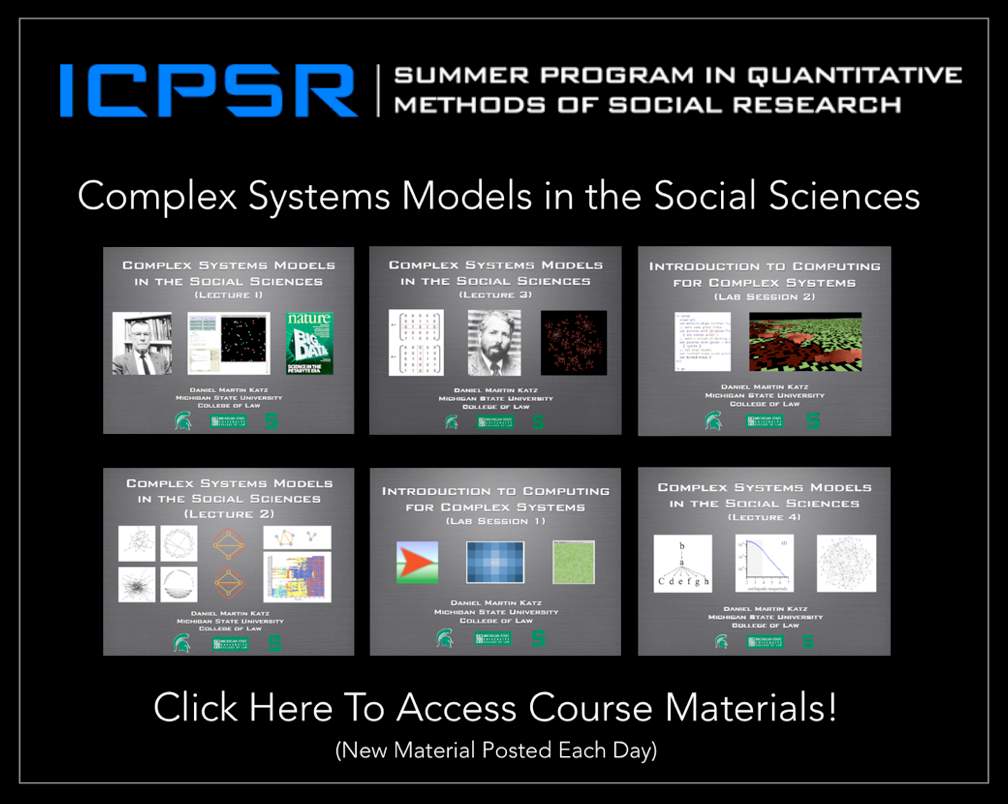 This week and next week I have the pleasure of teaching “Complex Systems Models in the Social Sciences” here at the University of Michigan ICPSR Summer Program in Quantitative Methods. The field of complex systems is very diverse and it is difficult to do complete justice to the range of scholarship conducted under this umbrella. However, we strive to cover the canonical topics such as computational game theory and computational modeling, network science, natural language processing, randomness vs. determinism, diffusion, cascades, emergence, empirical approaches to study complexity (including measurement), social epidemiology, non-linear dynamics, etc.
This week and next week I have the pleasure of teaching “Complex Systems Models in the Social Sciences” here at the University of Michigan ICPSR Summer Program in Quantitative Methods. The field of complex systems is very diverse and it is difficult to do complete justice to the range of scholarship conducted under this umbrella. However, we strive to cover the canonical topics such as computational game theory and computational modeling, network science, natural language processing, randomness vs. determinism, diffusion, cascades, emergence, empirical approaches to study complexity (including measurement), social epidemiology, non-linear dynamics, etc.
Using Algorithmic Attribution Techniques to Determine Authorship In Unsigned Judicial Opinions
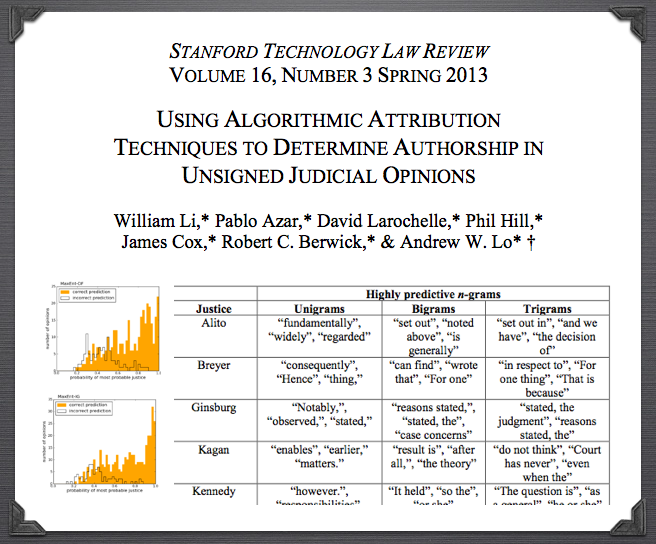
From the Abstract: “This Article proposes a novel and provocative analysis of judicial opinions that are published without indicating individual authorship. Our approach provides an unbiased, quantitative, and computer scientific answer to a problem that has long plagued legal commentators. Our work uses natural language processing to predict authorship of judicial opinions that are unsigned or whose attribution is disputed. Using a dataset of Supreme Court opinions with known authorship, we identify key words and phrases that can, to a high degree of accuracy, predict authorship. Thus, our method makes accessible an important class of cases heretofore inaccessible. For illustrative purposes, we explain our process as applied to the Obamacare decision, in which the authorship of a joint dissent was subject to significant popular speculation. We conclude with a chart predicting the author of every unsigned per curiam opinion during the Roberts Court.” <HT: Josh Blackman>
How the Science of Swarms Can Help Us Fight Cancer and Predict the Future {via Wired}
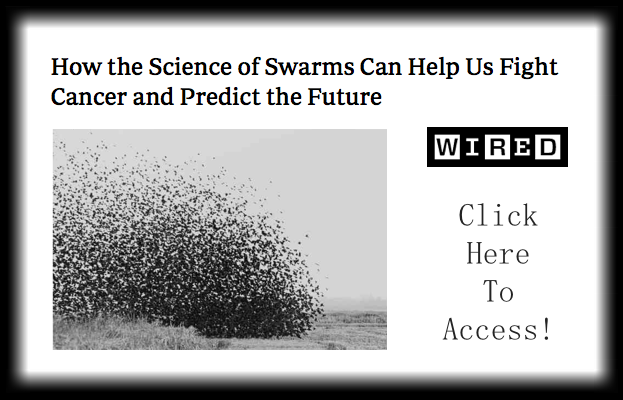
We cover the topic of Swarms at great length in the “Complex Systems in the Social Sciences Course” that I co-teach at the University of Michigan ICPSR Summer Program in Quantitative Methods. If you are interested in learning more here are some of the slides from last year. The 2013 Edition of the Course Begins in July in Ann Arbor!


